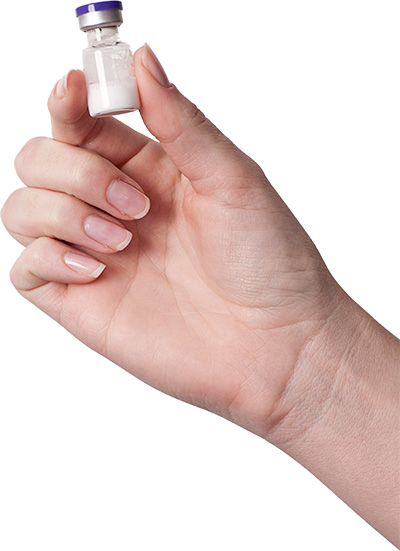DMPA is a long-acting hormone which is injected every 12 weeks into the buttock or upper arm.
After a few injections, monthly bleeding may stop altogether. This isn’t harmful.
How does it work?
- Stops the ovaries from releasing an egg each month.
- Thickens the mucus at the entrance to the womb (cervix) to stop sperm from moving into the uterus.
How well does it work?
DMPA is 99.8% effective at preventing pregnancy, but in real life it can be less effective (94%) if you’re late for an injection.
What are the benefits?
- You don’t have to remember to take a pill every day.
- Safe to use if you’re breastfeeding or you can’t take oestrogen.
- Can be useful if you don’t want to have periods.
What are the downsides?
- DMPA does not protect against STIs but can be used at the same time as condoms.
- You need to remember to get the injection every 12 weeks.
- It is not immediately reversible. This means that any side-effects can take some time to wear off.
- It can take some months for periods and fertility to return to normal.
Are there side effects?
It is rare to have serious problems with the contraceptive injection. You may experience:
- irregular bleeding, although this usually gets better with time and most people end up with no periods at all after having the injections for a year
- possible weight gain
- headaches
- tender breasts
- acne
- loss of bone density (with prolonged use)
The injection provides 12 weeks of contraception and no one can tell if you have had the shot.
Can anyone use DMPA?
DMPA is not usually recommended:
- as a first choice if you are under 18 years of age – this is because it may affect the density of your bones
- if you want to get pregnant within the next 12 to 18 months since it is not immediately reversible
Where do you get it?
The DMPA injection is available from your doctor or Family Planning Australia clinic.



